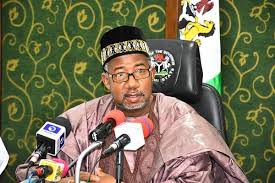
Bauchi to shut schools for five weeks over Ramadan
The Bauchi State government, through the Ministry of Education, has declared the closure of all educational institutions within the state in anticipation of the 2025 Ramadan fast for a duration of five weeks.
This declaration is included in the sanctioned school calendar for the 2024-2025 academic session in the state.
In a conversation with the News Agency of Nigeria (NAN) in Bauchi on Friday, Mr. Jalaludeen Maina, the Information Officer of the Ministry of Education, stated that the holiday had been integrated into the calendar well in advance.
He clarified that the closure would commence on March 1 and conclude on April 5.
Maina indicated that the closure would encompass all educational institutions, including all public and private primary, junior, and secondary schools, as well as higher institutions of learning within the state.
“Yes, we are implementing the closure of all our schools, and this measure is reflected in our approved 2024-2025 academic calendar, ensuring that our students will not undertake Ramadan fasting during their time at school.
“The five-week holiday is designated for Ramadan fasting, and immediately following the fasting period, they will return to their studies,” he articulated.
In the meantime, some parents within the state have expressed their concerns that this development will negatively affect their children’s educational advancement.
Mrs. Sunita Joseph, who conveyed her disappointment regarding this situation, underscored that the duration of the break is excessively lengthy.
“Why would the Ramadan break be extended to such a length? The children may have even begun to forget the material they had previously learned before the break,” she remarked.
Ismail Raji urged the state government to reevaluate the decision, noting that it could potentially exacerbate the issue of out-of-school children syndrome.
Mohammed Isa, who expressed discontent regarding the development, reminded the state government that the state ranks among those with the highest prevalence of out-of-school children.
He asserted that the government ought to implement projects and programs that would motivate parents to enroll their children in schools. (NAN)





